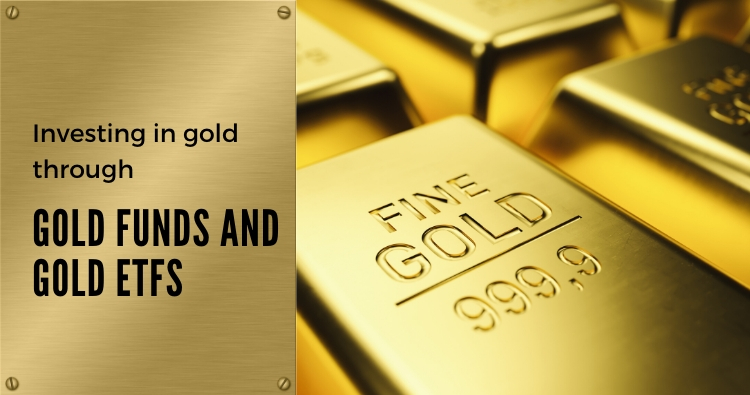

AMFI-Registered Mutual Fund Distributor



"Don't put all your eggs in one basket"
This old saying is still true. And, one of the areas of our life where we should not keep all your eggs in the same basket is our investment portfolio. Diversification of our portfolio is not a luxury but a necessity. The recent situation has made us all aware of the importance of diversification and have shown us that we cannot rely on just one investment option.
While the equity markets may recover, having a haven asset like gold can help you to put your worries on the back burner. Typically, gold and equity returns move in the opposite direction. Gold performs better when clouds of pessimism float in the market.
Please remember to see gold as a hedging option rather than an investment option. The role of gold in your portfolio is to protect your portfolio from drastic swings. The price of gold rises whenever there is uncertainty in the market. And the prices come down when normalcy returns.
We Indians love to hoard gold and we are the top consumers of gold. However, buying physical gold is not an effective way to invest in gold.
There are a few ways to invest in gold with none of the risks associated with physical gold. Gold mutual funds and gold ETFs are the two investment options offered by mutual fund houses that let you take part in the price movements of gold online.
In this article, we will discuss gold ETFs and gold mutual fund to help you to decide the right choice for yourself.
One unit of the gold ETF is equivalent to one gram of gold. The units of gold ETF like stocks are listed on the stock exchanges. This makes gold ETFs a liquid investment. However, the liquidity may vary across mutual fund houses.
A Demat account is needed to invest in gold ETFs.
As gold ETFs are listed on the exchanges and there is no active involvement of the fund manager, the management cost of these funds is very low compared to other actively managed funds.
Gold funds are an easier investment option for retail investors who don't have a Demat account.
Investors with a regular sum of money can also invest in gold mutual funds through Systematic Investment Plans(SIP). In SIP, investors can invest a specific sum of money periodically.
The management cost of gold ETFs can be a tad higher than gold ETFs.
Who should invest in Gold ETFs and gold mutual funds?
Gold mutual funds are better suited for retail investors who don't have a Demat account. Investors can invest in gold funds to plan for their children's marriages or diversify their portfolio through the SIP route.
How are Gold ETFs and gold funds taxed?
Conclusion:
Office No 1207, 12th Floor, Wing A, R K ICONIC, Near Shital Park BRTS stand, 150 Feet Ringroad, Rajkot 360006
+91 9898312354
Risk Factors & Disclosures
Investments in Mutual Funds and other financial instruments are subject to market risks. Please read all scheme-related documents carefully before investing. Mutual Fund schemes do not guarantee or assure any returns, and past performance may not be indicative of future results. There is no assurance that the investment objective of any suggested scheme will be achieved.
Investors are advised to evaluate exit loads, Total Expense Ratio (TER), and other applicable costs before making any investment decisions. We deal exclusively in Regular Plans of Mutual Fund schemes and earn a Trailing Commission on client investments. Commission earnings are disclosed to clients at the time of investment. Investors also have the option to invest in Direct Plans, which offer a lower expense ratio, but we do not earn commissions on Direct Plans and hence do not offer them.
AMFI Registered Mutual Fund Distributor – ARN-285987 | Date of Initial registration – 25 Jan 2024 | Current validity of ARN – 24 Jan 2027
Grievance Officer—Mr. Chintan Kamdar | Chintan@digi-finmart.com
Copyright 2024. DIGI-FINMART PVT. LTD. Important Links | Disclaimer | Disclosure | Privacy Policy | SID/SAI/KIM | Code of Conduct | SEBI Circulars | AMFI Risk Factors